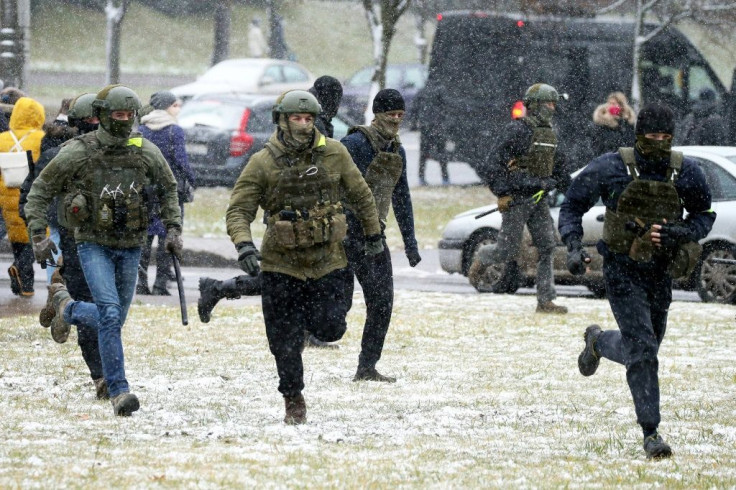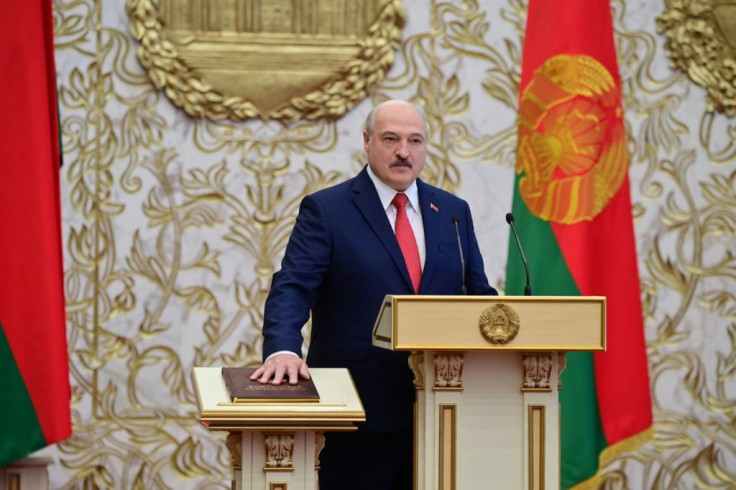Belarus Leader To Unveil Reforms At Assembly Of Loyalists
Belarusian strongman Alexander Lukashenko is convening hundreds of loyal delegates at a people's assembly this week to unveil promised reforms, in a display the embattled opposition has dismissed as political theatre.
Europe's longest-serving leader is rolling out the murky proposals to placate demonstrators who flooded streets across the ex-Soviet country last year to protest against his claim to a sixth presidential term.
The authoritarian ruler made promises in November to change the constitution to calm the protests just weeks after he was shown at a rally brandishing a Kalashnikov assault rifle and referring to protesters as rats.
The assembly kicking off Thursday in the capital Minsk is expected to draw around 2,700 hand-picked representatives from mostly state-backed sectors, including teachers and the heads of government factories.

The format is a descendant of the Soviet Union's communist party congress meetings, meaning it has no legislative clout or opposition representation.
Lukashenko said last year its purpose was to unveil draft amendments and ultimately to determine "how we will move forward and under what conditions".
But exiled opposition leader Svetlana Tikhanovskaya, who claimed victory in the election after running in place of her jailed husband, told AFP nobody was expecting anything.
The delegates have no true relation to regular citizens, she said, so the assembly had "no significance for Belarusians".
Lukashenko has held constitutional referendums twice before, both times pushing through changes that strengthened the presidency.

In 1996, two years after he became president, he gave himself greater power to appoint judges, including the chair of the Constitutional Court.
A second referendum in 2004 allowed him to serve three terms instead of two.

Yet both analysts and the opposition have low expectations that any tangible results will come from changes announced at the assembly.
Dmitri Bolkunets, a Belarusian political observer in Russia, said the conference was little more than a photo-op for the 66-year-old leader.
"Lukashenko sees no other role for himself than the president of the country," Bolkunets said.
"What he wants from this meeting is to show that he has 2,700 reliable supporters who will stand to applaud him for a few minutes."
The All-Belarusian People's Assembly is typically convened by Lukashenko during his presidential campaigns to give his candidacy a semblance of popular support.
But he opted last year to instead visit police and military units ahead of the vote.
As tens of thousands turned out for rallies in Minsk every weekend through the autumn, reaching up to more than 100,000 at their peak in a country of some 10 million, those security forces were vital in ensuring Lukashenko maintained his grip on power.
In a crackdown that left at least four protesters dead, riot police detained thousands of demonstrators, many of whom reported torture and abuse in custody.
The European Union slapped sanctions on Lukahshenko and his allies and EU diplomats met in Minsk on Sunday with the relatives of the Belarusians who died during the protests.
As the rallies have subsided, Lukashenko has claimed he staved off a revolution fomented by the West and led by fascists.
Beyond the constitutional reforms, delegates at Thursday and Friday's people's assembly will be expected to approve a draft law against the rehabilitation of Nazism.
Vlada Senkova, 34, a Belarusian film-maker living in Warsaw told AFP at a recent solidarity demonstration in the Polish capital that the assembly was "fake".
"It's theatre," she said, adding that the event would be used as a pretext to impose deeper curbs on the opposition.
"Belarusians will have even fewer rights than they had before. This will only restrict our actions."
© Copyright AFP 2024. All rights reserved.





















